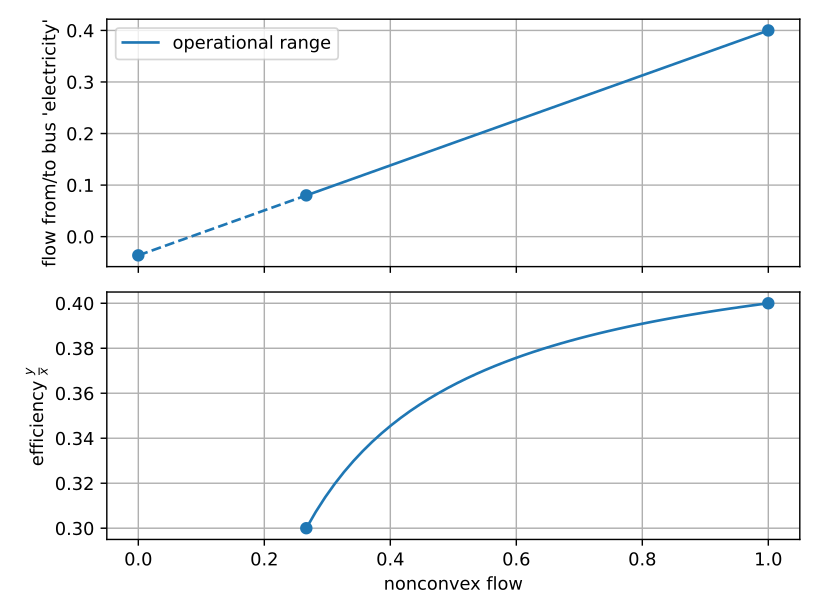Last week, some of us were in Nordhausen (Thuringia) visiting both, the oemof user meeting and the parallel RET.con. As the latter is addressing a broader audience, we tried to also shape the user meeting to welcome novices and interested students.
As an artefact of this meeting, we just released solph v0.6.3 (GitHub, Zenodo, PyPI), that just implements some quality of life improvements. (Tutorial sessions can be a great opportunity to learn about unnecessary barriers that nobody ever reports.)
- The parameter
nominal_capacitynow has an input validation. (We have seen people putting time series, which is currently not supported.) - Argument
infer_last_intervalof theEnergySystemnow tries to infer the interval also ifDatetimeIndex.freqis not explicitly set. This simplifies using time indexes from input data. - We added a tutorial focusing on time indexes and aggregation. (Note that some of the described features are experimental and subject to planned changes.)
- You can now access results using
Results.get(key, default). This way, theResultsobject is more similar to adict. We believe it to be easier to use this way.
Another result of the meeting is a new task interest group that will work on saving/loading energy systems and results. The aim is to simplify exchange of data without passing around Python scripts to be able to reproduce insights and findings.
PS: It was mentioned in the local news (nnz-online.de, in German), that we promote transparency and openness in energy research. nice to hear that these topics are recognised to be relevant for the general public.




